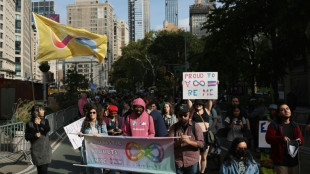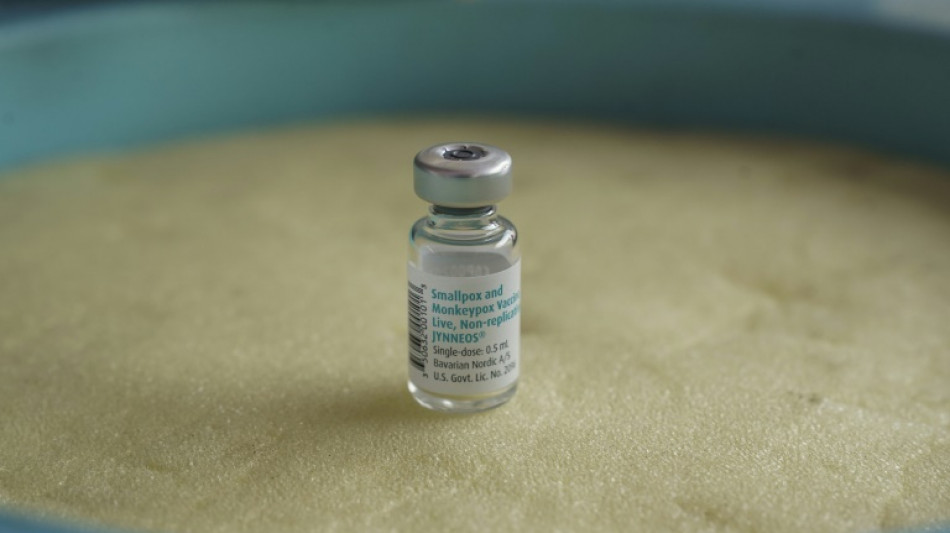
-
 Yesavage fairytale carries Blue Jays to World Series brink
Yesavage fairytale carries Blue Jays to World Series brink
-
Bank of Japan keeps interest rates unchanged

-
 Impoverished Filipinos forge a life among the tombstones
Impoverished Filipinos forge a life among the tombstones
-
Jokic posts fourth straight triple-double as Nuggets rout Pelicans

-
 UN calls for end to Sudan siege after mass hospital killings
UN calls for end to Sudan siege after mass hospital killings
-
Teenage Australian cricketer dies after being hit by ball

-
 As Russia advances on Kupiansk, Ukrainians fear second occupation
As Russia advances on Kupiansk, Ukrainians fear second occupation
-
Trade truce in balance as Trump meets 'tough negotiator' Xi

-
 China to send youngest astronaut, mice on space mission this week
China to send youngest astronaut, mice on space mission this week
-
Yesavage gem carries Blue Jays to brink of World Series as Dodgers downed

-
 With inflation under control, ECB to hold rates steady again
With inflation under control, ECB to hold rates steady again
-
Asia stocks muted with all eyes on Trump-Xi meeting

-
 Personal tipping points: Four people share their climate journeys
Personal tipping points: Four people share their climate journeys
-
Moto3 rider Dettwiler 'no longer critical' after crash: family

-
 US economy in the dark as government shutdown cuts off crucial data
US economy in the dark as government shutdown cuts off crucial data
-
Trump orders nuclear testing resumption ahead of Xi talks

-
 'Utter madness': NZ farmers agree dairy sale to French group
'Utter madness': NZ farmers agree dairy sale to French group
-
Samsung posts 32% profit rise on-year in third quarter

-
 30 years after cliffhanger vote, Quebec separatists voice hope for independence
30 years after cliffhanger vote, Quebec separatists voice hope for independence
-
Taxes, labor laws, pensions: what Milei wants to do next

-
 South Sudan's blind football team dreams of Paralympic glory
South Sudan's blind football team dreams of Paralympic glory
-
US says 4 killed in new strike on alleged Pacific drug boat
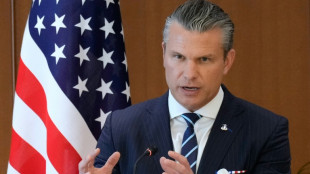
-
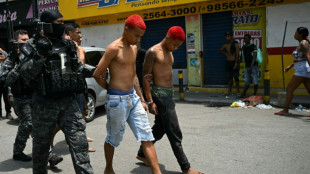 What we do and don't know about Rio's deadly police raid
What we do and don't know about Rio's deadly police raid
-
'They slit my son's throat' says mother of teen killed in Rio police raid
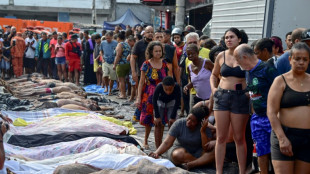
-
 Arteta hails 'special' Dowman after 15-year-old makes historic Arsenal start
Arteta hails 'special' Dowman after 15-year-old makes historic Arsenal start
-
Google parent Alphabet posts first $100 bn quarter as AI fuels growth
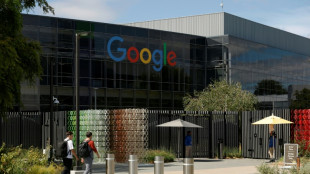
-
 Underwater 'human habitat' aims to allow researchers to make weeklong dives
Underwater 'human habitat' aims to allow researchers to make weeklong dives
-
Maresca slams Delap for 'stupid' red card in Chelsea win at Wolves

-
 'Non-interventionist' Trump flexes muscles in Latin America
'Non-interventionist' Trump flexes muscles in Latin America
-
Slot defends League Cup selection despite not meeting 'Liverpool standards'

-
 'Poor' PSG retain Ligue 1 lead despite stalemate and Doue injury
'Poor' PSG retain Ligue 1 lead despite stalemate and Doue injury
-
Liverpool crisis mounts after League Cup exit against Palace

-
 Kane scores twice as Bayern set European wins record
Kane scores twice as Bayern set European wins record
-
Radio Free Asia suspends operations after Trump cuts and shutdown

-
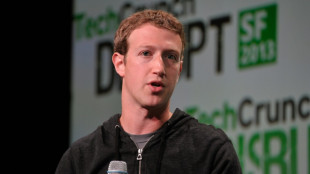 Meta shares sink as $16 bn US tax charge tanks profit
Meta shares sink as $16 bn US tax charge tanks profit
-
Dollar rises after Fed chair says December rate cut not a given
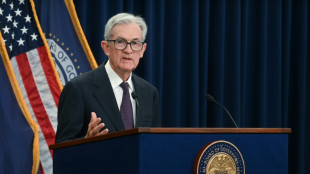
-
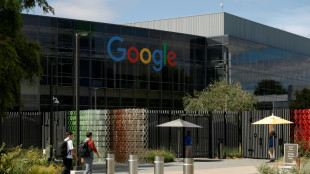 Google parent Alphabet posts first $100 bn quarter as AI drives growth
Google parent Alphabet posts first $100 bn quarter as AI drives growth
-
Rob Jetten: ex-athlete setting the pace in Dutch politics
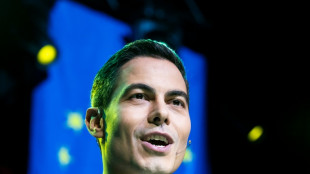
-
 Juve bounce back after Tudor sacking as Roma keep pace with leaders Napoli
Juve bounce back after Tudor sacking as Roma keep pace with leaders Napoli
-
Favorite Sovereignty scratched from Breeders' Cup Classic after fever

-
 Doue injured as PSG held at Lorient in Ligue 1
Doue injured as PSG held at Lorient in Ligue 1
-
Leverkusen win late in German Cup, Stuttgart progress

-
 Jihadist fuel blockade makes life a struggle in Mali's capital
Jihadist fuel blockade makes life a struggle in Mali's capital
-
Uber plans San Francisco robotaxis in Waymo challenge

-
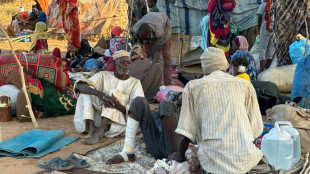 Paramilitary chief vows united Sudan as his forces are accused of mass killings
Paramilitary chief vows united Sudan as his forces are accused of mass killings
-
Trump, Xi to meet seeking truce in damaging trade war
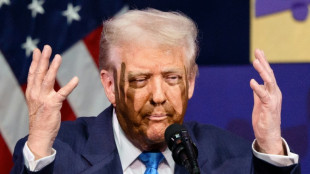
-
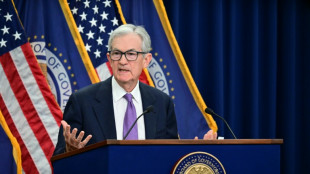 Divided US Fed backs second quarter-point rate cut of 2025
Divided US Fed backs second quarter-point rate cut of 2025
-
'Amazing' feeling for Rees-Zammit on Wales return after NFL adventure

-
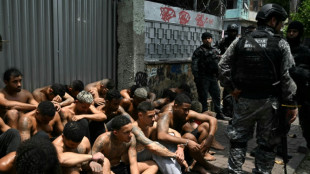 'Cruel' police raids help, not hinder, Rio's criminal gangs: expert
'Cruel' police raids help, not hinder, Rio's criminal gangs: expert
-
S. African president eyes better US tariff deal 'soon'
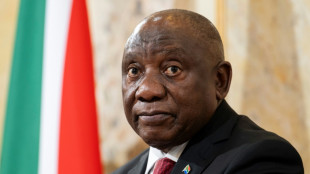

Pandemic agreement: key points
After more than three years of thorny negotiations, World Health Organization member states finalised early Wednesday a major agreement on pandemic prevention, preparedness and response.
Here are the main points in the accord, which will be submitted for final approval at the WHO's annual assembly next month.
- Objective -
The objective of the WHO Pandemic Agreement is "strengthening pandemic prevention, preparedness and response".
Following the glaring inequity and deficiencies exposed in the world's handling of the Covid-19 pandemic, the agreement is guided by the principles of equity, solidarity and transparency.
Respect for the sovereign rights of states -- an issue widely questioned by conspiracy theories that have surrounded the negotiations -- is also a key foundation, according to the text.
- Pathogen access, benefit sharing -
The heart of the agreement is the proposed Pathogen Access and Benefit-Sharing System (PABS) -- a new platform allowing the swift sharing of pathogen data with pharmaceutical companies, enabling them to start work quickly on pandemic-fighting products.
This was one of the trickiest parts to negotiate.
Developing countries had expressed concerns about handing over pathogens and data if they risked being cut off from accessing the resultant vaccines, tests and treatments, as happened at the start of the Covid-19 pandemic.
Under PABS, countries will commit to sharing data rapidly on emerging problematic pathogens, while vaccines and other health products derived from accessing that information would be shared on a more equitable footing.
The text calls for participating manufacturers to make available to the WHO at speed "20 percent of their real-time production" of pandemic-related health products, including "a minimum threshold of 10 percent" in the form of donations, and the rest "reserved at affordable prices" for the UN health agency.
Manufacturers, even those based in non-WHO countries, can choose freely to participate in the voluntary programme, for which the practical modalities still remain to be negotiated.
- Technology transfer -
Another main sticking point has been the modalities around the transfer of technology and know-how needed to produce pandemic-related health products, in particular to developing countries.
Some wealthier countries, notably ones where such products are currently produced, rejected the idea that such transfers should be mandatory.
The agreed-upon text instead calls for transfers to be undertaken on "mutually agreed" terms.
And it calls for the use of measures and incentives including licensing agreements and favourable conditions linked to things like financing and regulations to promote technology transfer.
- Prevention and surveillance -
Under this section, countries will take progressive steps to strengthen their pandemic prevention and surveillance capacities.
Subject to resources, countries are called on to develop, reinforce and implement comprehensive national pandemic prevention plans.
This would include things like routine immunisation, managing biological risks in laboratories, preventing antimicrobial resistance, and stopping the transmission of diseases from animals to humans.
- Sustainable local production -
The text calls for countries to take measures to ensure "more equitable geographical distribution and rapid scale-up of the global production of pandemic-related health products" like vaccines.
It also calls for more "sustainable, timely and equitable access to such products", and for countries to "reduce the potential gap between supply and demand during pandemic emergencies".
- Supply chain and logistics -
In an attempt to smooth out the flaws exposed by Covid-19, a Global Supply Chain and Logistics Network will be set up for equitable, timely and affordable access to pandemic-related health products.
During pandemic emergencies, countries should prioritise sharing pandemic-related health products through the network to ensure equitable distribution based on public health risk and need.
The structure and operational modalities of the network, which is to be coordinated by the WHO, will be defined at its first meeting, according to the text.
N.Schaad--VB




